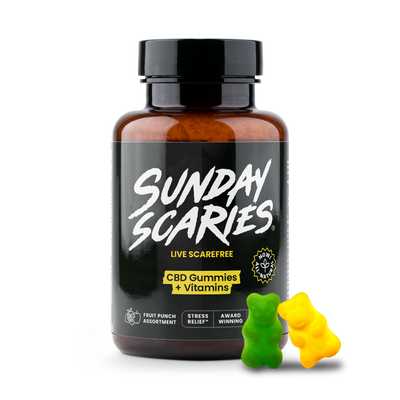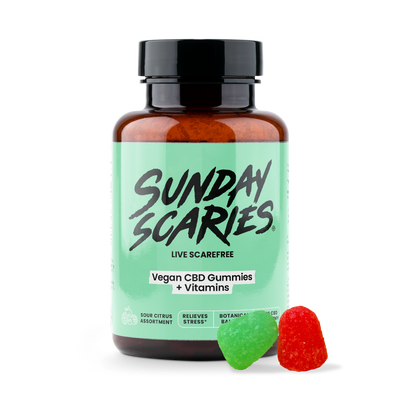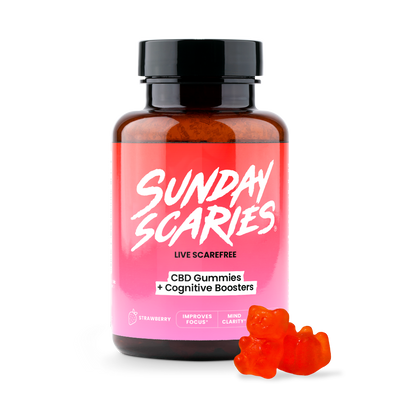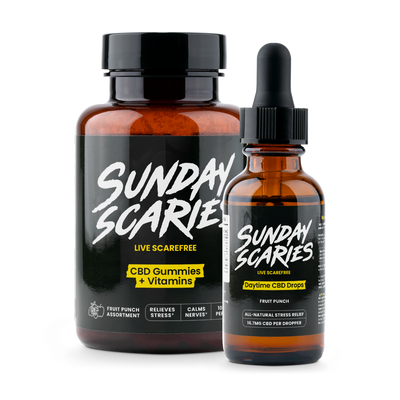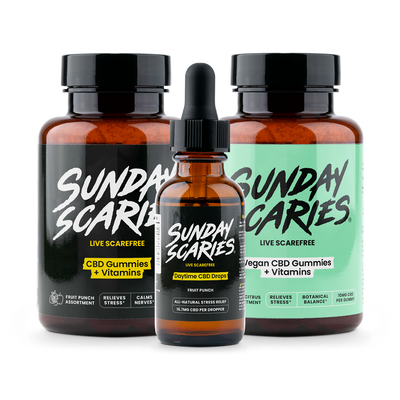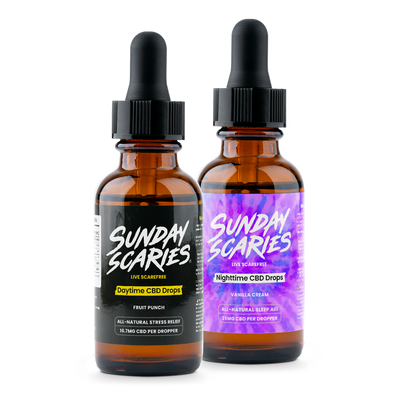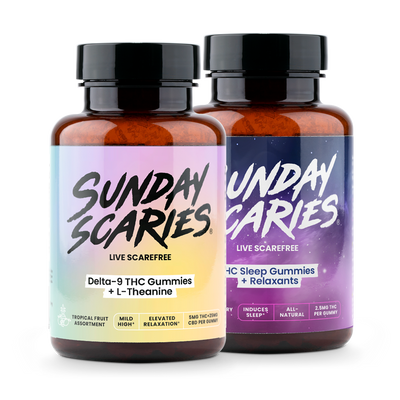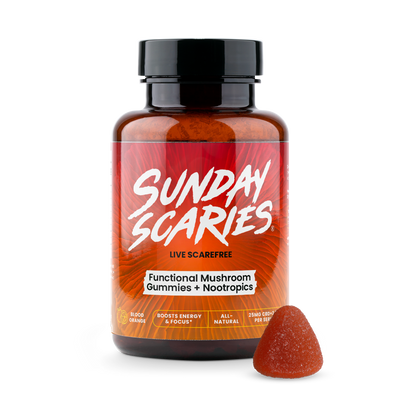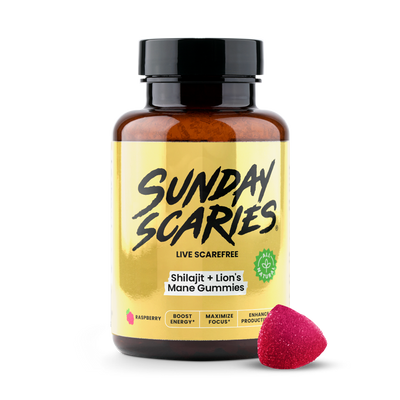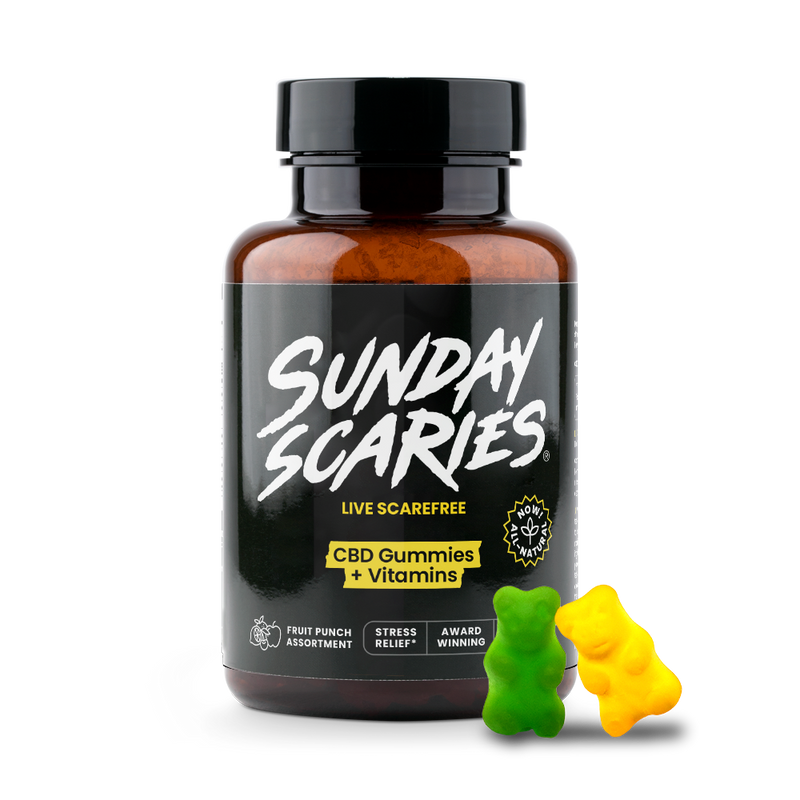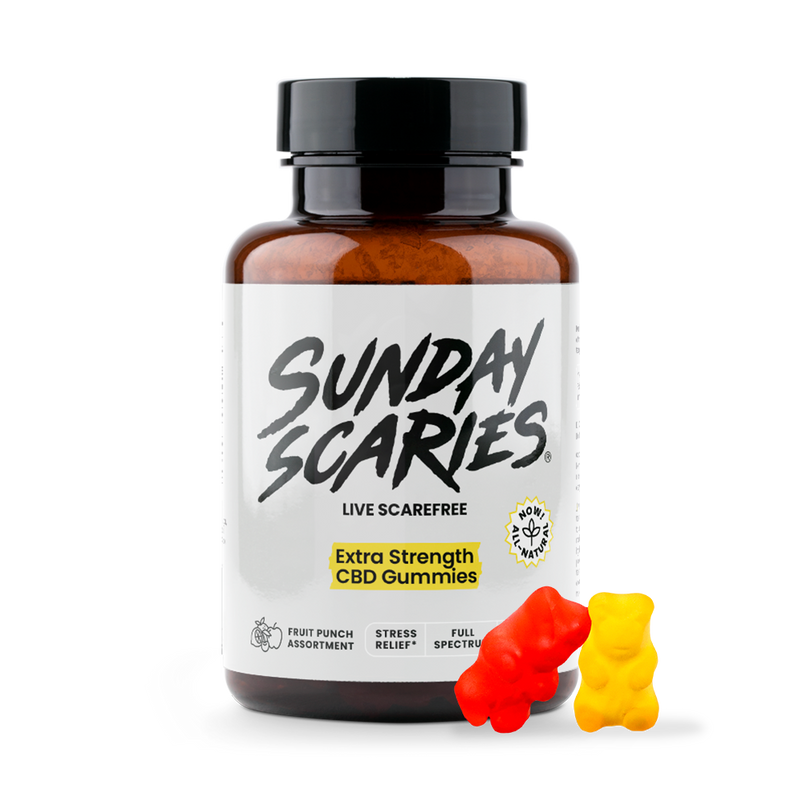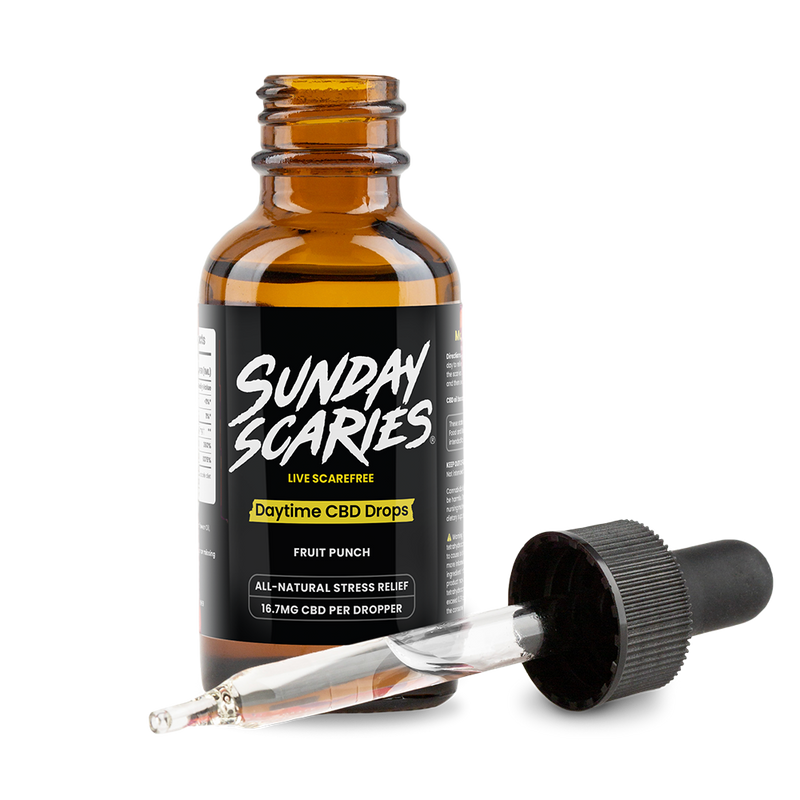
Can You Be Allergic to CBD Edibles?: Understanding Your Reaction
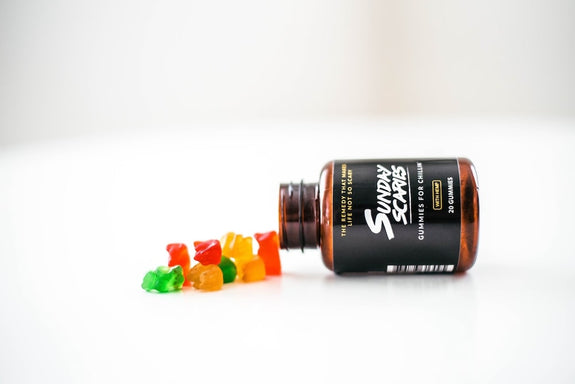
Yes, it is possible to be allergic to CBD edibles. Allergic reactions can occur due to the CBD itself, which is rare, or other ingredients in the edibles. Symptoms may include itching, swelling, or respiratory issues. Always consult a healthcare professional if you suspect an allergy.
This article unpacks the nuances of CBD-related allergies, pinpointing both common and unexpected allergens that might lurk in your edible treats, and offering insights on how to manage and prevent reactions.
Key Takeaways
- While rare, allergic reactions to CBD edibles can arise from CBD itself or various other ingredients, including common allergens in food products, contaminants like pesticides and heavy metals, and even carrier oils such as coconut or hemp seed oil.
- The complexity of products’ compositions, such as the inclusion of artificial flavorings, colorings, terpenes, and other potential allergens, highlights the importance of reading labels carefully and considering personal allergies or sensitivities when choosing CBD edibles.
- The legal landscape for CBD edibles is varied and underdeveloped, which elevates the necessity of third-party testing for verifying the quality and purity of CBD products to mitigate the risk of allergies and ensure consumption safety within the bounds of federal and state regulations.
Exploring the Possibility of Allergic Reactions to CBD Edibles
Have you ever wondered if those serene moments of bliss offered by CBD edibles could be disrupted by an allergic reaction?
Allergies are the body’s defense mechanisms kicking into overdrive when encountering a harmless substance it mistakenly perceives as a danger.
While allergic reactions to CBD are considered uncommon, they are not outside the realm of possibility. These reactions can range from a mere nuisance, such as mild itching or swelling, to life-threatening conditions like anaphylaxis.
Consumers might be surprised to learn that allergic reactions to CBD edibles can stem from not only the CBD itself but also from various other compounds and ingredients found within the product. Be aware that the reaction might stem from other ingredients or contaminants such as pesticides, residual solvents, or mold, not necessarily the CBD itself.
Additionally, if you have a history of allergies, especially to plants, it’s worth considering the potential for allergic sensitization due to cross-reactivity. Understanding the components that may trigger a reaction to CBD edibles is the first step in safeguarding against potential allergic reactions.
Identifying Common Allergens in CBD Edibles
When it comes to CBD edibles, the usual suspects for triggering allergic reactions include ingredients that are common in the food industry.
For instance, CBD gummies and extra strength CBD gummies are popular choices among consumers, and may contain allergens such as corn, gelatin, or food dyes. These are the components that, while not inherently harmful to everyone, can certainly cause discomfort for individuals with specific sensitivities.
Beyond cannabis allergens, reactions to CBD products may originate from these seemingly harmless ingredients.
Hidden Ingredients to Watch Out For
Navigating the world of CBD edibles requires vigilance, as hidden allergenic substances can lurk within these tasty treats.
These hidden foes are not always immediately obvious and may include contaminants or residues from the manufacturing process, such as pesticides, chemicals, and solvents, along with heavy metals. Such substances can inadvertently become part of the edible and trigger allergic reactions in susceptible individuals.
Furthermore, the phenomenon of cross-reactivity can be a concern. It occurs when the immune system recognizes similar allergenic proteins across different substances, leading to unexpected reactions. For instance, someone with a sensitivity to tomato or nuts might react to cannabis due to shared proteins.
Additionally, products sometimes contain ingredients that can trigger allergy symptoms, such as:
- Artificial flavors
- Alcohol
- Preservatives
- Fragrances
- Sensitivities from terpenes
These can also provoke allergies. Hence, awareness of these concealed ingredients and their potential discomfort-causing efficacy is indispensable.
To mitigate adverse reactions and prevent a severe allergic reaction, always purchase CBD products from credible companies who transparently show third party lab results for each product on their website.
The Role of Flavorings and Colorings
The allure of CBD edibles often lies in their taste and appearance, but the very elements that make them appealing—flavorings and colorings—can also be culprits in allergic reactions.
Terpenes, for instance, are naturally occurring compounds that give plants their aroma and flavor. In CBD edibles, terpenes such as:
- Myrcene
- Limonene
- Caryophyllene
- Pinene
- Linalool
- Humulene
- Terpinolene
- Ocimene
- Geraniol
- Valencene
- Eucalyptol
- Borneol
- Bisabolol
- Guaiol
- Phellandrene
are added for scent and taste but may be problematic for those with allergies. If you’re someone who reacts to perfumes or fragrances, it’s wise to seek out unscented CBD oils or products with CBD isolates to avoid triggering a fragrance allergy.
To find your perfect CBD type, check out the difference between Full Spectrum, Broad Spectrum and Isolate.
These flavorings and colorings, while enhancing the sensory experience of CBD edibles, can have the unintended effect of triggering allergies.
It’s not just about the CBD; it’s the entire composition of the product that matters. Identifying potential reaction-inducing elements is imperative for people wanting to relish CBD edibles without the apprehension of an allergic reaction.
Carrier Oils and Allergies
Carrier oils play a significant role in the formulation of CBD products, but they can also be a source of allergic reactions.
Common carriers like coconut oil and hemp seed oil are often used in CBD oil to enhance absorption, yet some individuals may find themselves sensitive or even allergic to these oils. It’s important to consider any known sensitivities or allergies to carrier oils before using these products.
For those with a particular allergy to hemp seeds, it’s advisable to consult with a healthcare provider and undergo allergy testing. Although research on hemp seed oil allergies is not extensive, caution is warranted.
Additionally, individuals with tree nut allergies might consider avoiding CBD products that use coconut oil due to potential cross-reactivity, even though coconut oil does not contain nuts or nut proteins.
Understanding the carrier oils in your CBD products and their possible allergenic effects is key to a safe and pleasurable experience.
CBD Edibles vs. Other CBD Products: Allergy Risks
It’s essential to weigh the allergy risks of CBD edibles against those of other CBD products. Edibles often incorporate additional ingredients that can increase the likelihood of allergic reactions.
This highlights the significance of diligently examining product labels; comprehending the type of CBD—whether full-spectrum, broad-spectrum, or isolate—and the presence of other compounds like THC is vital to lessen allergy risks and avoid any surprises.
Choosing CBD edibles over other forms of CBD products can be a matter of preference, but it also introduces a different risk profile regarding allergies. It’s not just about the active ingredient; it’s the entire recipe that counts.
In the following section, we will delve into the implications of having a cannabis allergy and its relation to CBD edibles.
Understanding Cannabis Allergies
As cannabis becomes more mainstream due to increased medicinal use and legalization in some areas, the incidence of reported cannabis allergies is on the rise. These allergies can manifest in various ways, including asthma symptoms, such as:
- A dry cough
- Congestion
- Contact dermatitis
- In rare severe cases, anaphylaxis
Much like other plant and pollen allergies, including those caused by the marijuana plant, cannabis allergies can develop and lead to adverse reactions to CBD, creating a complex health puzzle for affected individuals.
Cannabis allergy may also involve cross-reactivity with other plant-derived substances, meaning that if you’re allergic to certain foods or pollens, you might also react to cannabis due to similar protein structures.
However, experiencing a marijuana allergy does not necessarily mean you will have an allergic reaction to CBD, as the two are not always directly correlated.
With that in mind, we will examine the specific allergy symptoms that can result from allergic reactions to CBD edibles:
- Skin rash or hives
- Itchy or watery eyes
- Sneezing or runny nose
- Swelling of the lips, tongue, or throat
- Difficulty breathing or wheezing
- Nausea or vomiting
- Abdominal pain or diarrhea
If you experience any of these symptoms after consuming CBD edibles, it is important to seek medical attention.
Managing a Severe Allergic Reaction to CBD Edibles
Encountering a severe, adverse reaction to CBD edibles can be alarming, but knowing how to manage it is key. In the case of anaphylactic reactions, characterized by severe symptoms such as:
- Hives
- Facial or mouth swelling
- Wheezing
- Vomiting
- Foaming of the mouth
immediate action is required. Over-the-counter antihistamines may provide quick relief, but emergency medical attention is imperative.
For those with confirmed allergies, the best course of action is to avoid CBD edibles and discontinue use if an allergic reaction occurs.
Those with severe allergies to cannabis or CBD should be prepared with emergency medication like an EpiPen and may benefit from preventive allergy medications such as intranasal corticosteroids and nasal decongestants.
To preemptively manage allergies, considering a patch test with new CBD products and practicing strict avoidance if there is a known allergy to CBD or cannabis is a wise strategy. So, how can you discern whether it’s the CBD or another ingredient at fault for the reaction? We will address that uncertainty in the next section.
Preventing Unpleasant Experiences: How to Choose Safer CBD Edibles
To ensure a pleasant experience with CBD edibles and reduce the risk of allergic reactions, it’s important to source your products from trustworthy suppliers.
Reputable brands with trusted manufacturing or state-regulated dispensaries are your best bet for finding high-quality products. Packaging that clearly lists all pertinent details such as:
- Manufacturer information
- Ingredients
- Batch numbers
- Storage guidance
is a hallmark of product transparency.
Prioritizing the overall quality and purity of CBD edibles is of utmost importance, as it directly links to the reduction of adverse effects.
Importance of Third-Party Testing
Third-party lab testing stands as a beacon in the murky waters of the CBD market, providing an essential service that validates the quality, purity, and potency of CBD edibles.
By analyzing cannabinoid and terpene profiles, as well as checking for heavy metals, organic solvents, and biological contaminants, third-party labs ensure that products adhere to safety standards.
This is particularly important in a market with insufficient regulatory oversight, leading to possible inaccuracies on labels and the presence of contaminants.
Access to lab reports builds consumer trust by offering concrete evidence that CBD edibles are free from harmful substances and true to their advertised claims.
Given the current commercial landscape, third-party testing is not merely an option—it’s a must-have for those wanting certainty about the products they consume.
Seeking Hypoallergenic Options
When it comes to CBD edibles, starting with a small amount can be a prudent way to test for potential allergic reactions, especially for those who may not tolerate CBD well.
If you’re particularly sensitive to terpenes, choosing CBD edibles made from full-spectrum extracts, which should be tested for their terpene content, can help avoid triggering an allergic response. Or, you can avoid terpenes altogether by choosing a product with CBD isolate, the pure form of CBD.
Seeking out hypoallergenic options and being mindful of one’s sensitivities is key to enjoying the benefits of CBD without the worry of allergic consequences.
By opting for products that cater to specific needs and sensitivities, individuals can enjoy the therapeutic potential of CBD while minimizing the risk of an unpleasant allergic reaction.
Legal Considerations and CBD Edibles
Understanding the legal framework of CBD edibles is as important as comprehending their health implications.
The 2018 Farm Bill federally legalized hemp-derived CBD containing less than 0.3% THC on a dry weight basis, opening the door for a burgeoning market of CBD products.
However, state laws can vary dramatically, with some states embracing full legalization and others imposing restrictions. This patchwork of regulations underscores the importance of staying informed about the legal status of CBD in your area.
Despite the federal legality of hemp-derived CBD, the FDA has yet to authorize its addition to food or to market it as a dietary supplement. This stance stems from safety concerns and the absence of a determined safety profile for CBD.
Consequently, the onus falls on third-party testing to provide consumers with the assurance of product safety, free from false claims or contamination.
As legal regulations continue to change, keeping up-to-date with new laws passed by Congress is crucial for both consumers and businesses in the CBD industry.
Summary
As we’ve journeyed through the intricacies of CBD edibles and allergies, it’s clear that while allergies to CBD are rare, they are not to be taken lightly.
From the various allergens present in edibles to the symptoms and management of allergic reactions, there’s a wealth of considerations for consumers. Understanding the potential for cannabis and CBD allergies, the importance of product choice, and the legal landscape surrounding these products is crucial for a safe and enjoyable experience.
In conclusion, by staying informed, reading labels carefully, opting for third-party tested products, and understanding your own body’s sensitivities, you can navigate the world of CBD edibles with confidence.
Whether you’re seeking relief, relaxation, or wellness, remember that knowledge is power—power that ensures your CBD journey is both beneficial and safe.
Frequently Asked Questions
Can you be allergic to CBD itself, or is it other ingredients in the edibles?
Allergic reactions to pure CBD are rare but can occur. More commonly, allergies are due to other ingredients in CBD edibles, such as flavorings, colorings, carrier oils, or contaminants.
What are the symptoms of a CBD edible allergy?
If you experience symptoms such as skin irritation, congestion, migraines, breathing difficulties, and gastrointestinal issues after consuming a CBD edible, it may indicate an allergic reaction. Seek medical attention immediately if you have severe reactions like anaphylaxis.
How can I prevent an allergic reaction to CBD edibles?
To prevent an allergic reaction to CBD edibles, start by trying a small amount of CBD to test for reactions and read labels carefully to avoid known allergens. Consider opting for third-party tested products for quality assurance and full-spectrum extracts if you have known terpene sensitivities.
What should I do if I have an allergic reaction to a CBD edible?
If you have an allergic reaction to a CBD edible, stop using it, take over-the-counter antihistamines if available, and seek emergency medical attention if severe symptoms like anaphylaxis occur. It's important to consult with a healthcare professional for a proper diagnosis and guidance.
Can you be allergic to vegan CBD edibles?
Yes, you can be allergic to vegan CBD edibles, including vegan CBD gummies. Allergic reactions may be caused by CBD or other plant-based ingredients in the edibles. Symptoms can include itching, swelling, or respiratory issues. If you suspect an allergy, consult a healthcare professional.
Can you be allergic to THC edibles?
Yes, you can be allergic to THC edibles, including THC gummies and Delta-9 THC gummies. Allergic reactions may result from THC itself or other ingredients in the gummies, leading to symptoms such as itching, swelling, or respiratory issues. If you suspect an allergy, consult a healthcare professional.
Can my dog be allergic to CBD edibles?
Yes, your dog can be allergic to CBD edibles, including CBD dog treats. Allergic reactions in dogs may result from CBD itself or other ingredients in the treats. Symptoms can include itching, swelling, digestive issues, or respiratory problems. If you suspect your dog has an allergy, consult a veterinarian.
Are there legal concerns I should be aware of when purchasing CBD edibles?
Yes, it's crucial to be aware of the varying state laws regarding CBD edibles and to ensure you purchase from reputable sources that comply with safety standards. Be mindful of your state's regulations.

